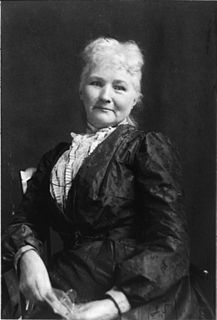A Quote by Mary Harris Jones
I nursed men back to sanity who were driven to despair. I solicited clothes for the ragged children, for the desperate mothers. I laid out the dead, the martyrs of the strike.
Related Quotes
I am not blind to the shortcomings of our own people. I am not unaware that leaders betray, and sell out, and play false. But this knowledge does not outweigh the fact that my class, the working class, is exploited, driven, fought back with the weapon of starvation, with guns and with venal courts whenever they strike for conditions more human, more civilized for their children, and for their children's children.
I accept that friends of ours have decided that the President's non-strike has somehow impacted perceptions of us. But I believe they are dead wrong and I think the critics are dead wrong, and here's why. The President [Barack Obama] made his decision to strike. He announced his decision to strike publicly. And the purpose of the strike was to get the chemical weapons out of Syria. That's the purpose.
Most of us in the baby-boom generation were raised by full-time mothers. Even as recently as 14 years ago, 6 out of 10 mothers with babies were staying at home. Today that is totally reversed. Does that mean we love our children less than our mothers loved us? No, but it certainly causes a lot of guilt trips.
I have seen war. I have seen war on land and sea. I have seen blood running from the wounded. I have seen men coughing out their gassed lungs. I have seen the dead in the mud. I have seen cities destroyed. I have seen 200 limping, exhausted men come out of line—the survivors of a regiment of 1,000 that went forward 48 hours before. I have seen children starving. I have seen the agony of mothers and wives. I hate war.
I have two children myself. I always laugh; they have you playing mothers pretty early, us women. You look at the television, the mothers get younger and younger, and the children get older and older, and you start to wonder when these people had these children. Were they breeding when they were 12?
Daughters could survive a powerful mother, but boys found it almost impossible. Such boys were often severely damaged and spent the rest of their lives running away from their mothers, or from anybody who remotely reminded them of their mothers; either that, or they became their mothers, in a desperate, misguided act of psychological self defence.
The mass of men lead lives of quiet desperation. What is called resignation is confirmed desperation. From the desperate city you go into the desperate country, and have to console yourself with the bravery of minks and muskrats. A stereotyped but unconscious despair is concealed even under what are called the games and amusements of mankind. There is no play in them, for this comes after work. But it is a characteristic of wisdom not to do desperate things.
Ideas about mothers have swung historically with the roles of women. When women were needed to work the fields or shops, experts claimed that children didn't need them much. Mothers, who might be too soft and sentimental, could even be bad for children's character development. But when men left home during the Industrial Revolution to work elsewhere, women were "needed" at home. The cult of domesticity and motherhood became a virtue that kept women in their place.






































